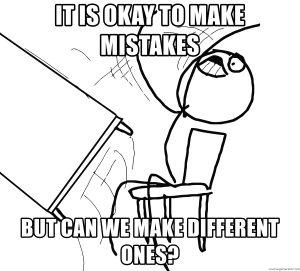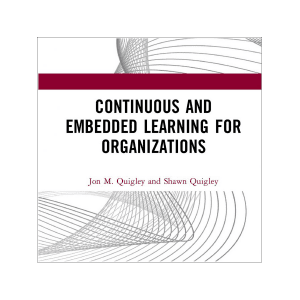To Learn, or Not to Learn- There is Really No Question.
To Learn, or Not to Learn- There is Really No Question.
I have spent time in a variety of roles in product development, from engineer to manager and process manager. In the latter, as project and process manager, even in early 2000, there were organization processes and structures in place to encourage and record learning in these areas. Recently we wrote a book (with Shawn P Quigley – my brother) on these topics.
Can you believe that at one time we lived in caves? Now we are exploring the possibility of living on Mars. This progress, all progress, is built of learning over years and decades. Each of us has a microcosm of this in our lifetime. We move from telephones that sit on desks or hang on the wall. Now we walk around with cell phones.
Without learning, we can only guess the parameters and attributes that matter and bring about the desired specific outcome. Some of this is trial and error, and some may be through simulations where we attempt to model the world as we understand it, then compare that to some outcome to see if the models predict or have a high correlation. When models do not correlate well with an outcome, we still have learning to do. This is not to suggest that this process is easy, some parameters do not matter, too many parameters confound the work, too few likewise. Effective learning means we produce better predictions.
Learning and lack of Learning
There are many failure types when it comes to learning. These failures will impact individuals as well as the corporation.
The Cat
In the quote below, the cat will not sit on the stovetop because the stovetop is hot. Personally, I wonder who lets their cat sit on the stove? The truth is the cat would not sit on the hot stove but it would be okay if they sat on the cold stove, maybe even warm. Since any learning from this event is limited, all stove lids become off-limits. The reason for not sitting on the stove is not understood so we rule out things that might be good solutions.
We should be careful to get out of an experience only the wisdom that is in it- and stop there lest we be like the cat that sits down on a hot stove lid. She will never sit down on a hot stove lid again – and that is well, but also she will never sit down on a cold one anymore.
~ Mark Twain
Burning Our Hand – Over and Over
I once heard a manager at a global company lament, “it is okay to make mistakes, but can’t we make different ones?”
This is a failure mode that costs the company over and over again. Besides the monetary costs, and from experience, this lack of learning has an impact on the morale of our team members. Recurringly burning our hand a metaphoric hot stove does not build morale especially when the team continually is subjected to the results and are expected to “clean up the mess”.
There is only one thing more painful than learning from experience, and that is not learning from experience.
~ Laurence J. Peter

Learning and Mistakes
We have all likely made decisions and perhaps discovered that the things we thought were good ideas, turn out to be poor ideas. This discovery comes from taking some action to accomplish what we desire and find out the approach was errant as a result of hindsight.
Finally, another quote we find interesting is the one below. Making mistakes, taking calculated risks, from which we can learn is important for human development and organization development. The fear of making mistakes dampens any learning. The environment must be one where the team members can take these calculated risks, without fear of failure. The fear of failure will retard any exploration beyond what the individual or team members know. Learning comes from this exploration beyond what we know, or better still, what we think we know.
Good judgment comes from experience, and experience comes from bad judgment.
~ Rita Mae Brown
In Review
We are not suggesting that understanding the complex world is simple. There are frequently many variables for the things we are exploring. From experience, understanding what variables matter is part of the learning experience. Learning requires time, and a move from the only saying, when I say jump, you do not even say how high, just start jumping. This is one of the reasons Agile or Scrum are so effective, there is time, space and formal mechanisms to encourage exploration and learning as these two items go hand in hand.

